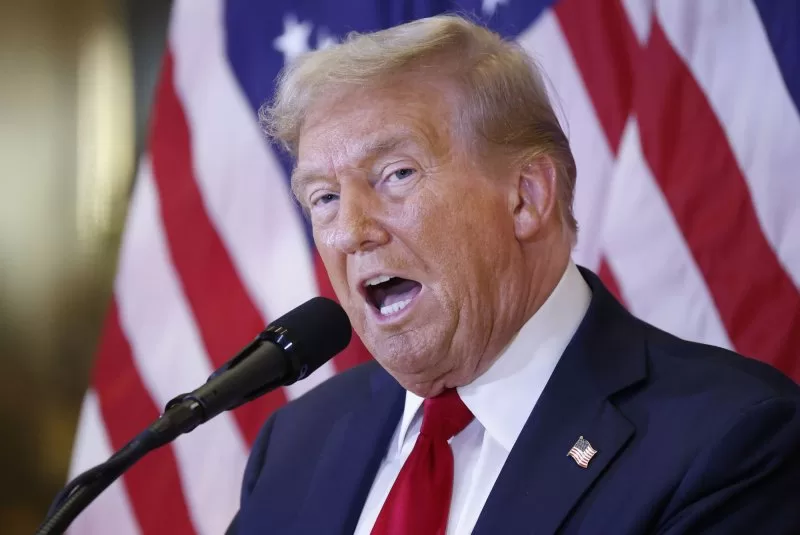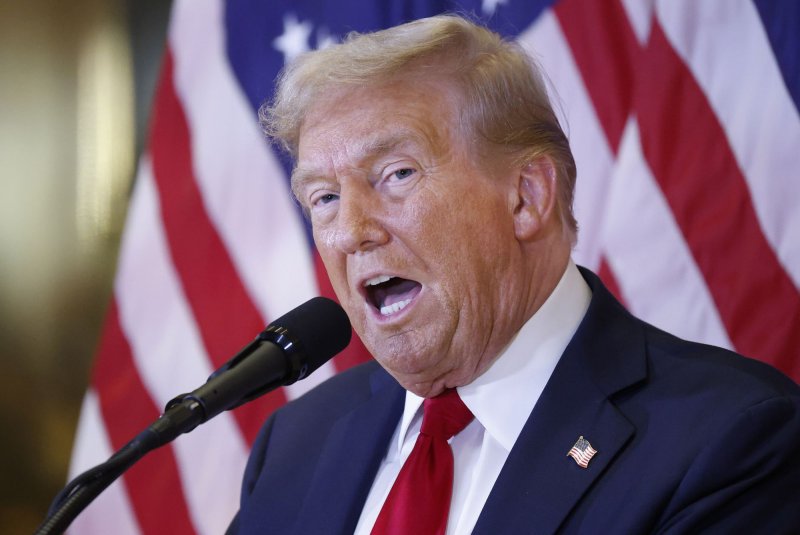1 of 2 | Iranian hackers stole sensitive information from the Trump campaign over the summer and emailed it to individuals affiliated with the Biden campaign, U.S. investigators revealed days ago, including internal documents relating to the vetting of Trump’s vice presidential nominee, Ohio Sen. JD Vance. Photo by John Angelillo/UPI |
License PhotoSept. 27 (UPI) — The United States unsealed on Friday criminal charges on three suspected computer hackers allegedly linked to Iran’s government and connected to a hack aimed at former President Donald Trump.
Masoud Jalili, 36; Seyyed Ali Aghamiri, 34; and Yasar Balaghi, 37, were the three named as alleged hackers and who have been accused by the United States of multiple crimes, including aggravated identity theft and wire fraud on behalf of the Islamic Revolutionary Guard Corps for the Iranian government.
According to the federal government, the three currently reside in Iran.
“This indictment alleges a serious and sustained effort by a state-sponsored terrorist organization to gather intelligence through hacking personal accounts so they can use the hacked materials to harm Americans and corruptly influence our election,” U.S. Attorney for the District of Columbia Matthew Graves said Friday in a DOJ statement.
And in a separate move on Friday, the Treasury named seven individuals the United States believes sought to “influence or interfere” in this year’s and the previous presidential election in 2020.
The three men accused in the multi-year hacking have been charged with 18 counts, including wire fraud, identity theft, conspiracy to provide material support to a terrorist organization and hacking conspiracy.
“Iranian state-sponsored actors have undertaken a variety of malicious cyber activities, such as hack-and-leak operations and spear-phishing, in an attempt to undermine confidence in the United States’ election processes and institutions while also seeking to influence the political campaigns,” State Department spokesman Matthew Miller said Friday in a statement.
Meanwhile, the government of Iran has denied the U.S. allegations.
DOJ says their activities were part of a more-recent phase in a “wide-ranging hacking conspiracy” in support of Iran’s ISRGC which targets former and current U.S. officials.
The Iranian hackers stole sensitive information from the Trump campaign over the summer and emailed it to individuals affiliated with the Biden campaign, U.S. investigators revealed days ago, including internal documents relating to the vetting of Trump’s vice presidential nominee, Ohio Sen. JD Vance.
In June, the hacking scheme began when the alleged Iran-linked hackers targeted longtime Trump advisor Roger Stone by hijacking Stone’s email account in order to target campaign staff.
Microsoft had issued a warning that a hacker group run by Iran’s Islamic Revolutionary Guard Corps known as Mint Sandstorm had sent a “spear-phishing” email to a “high-ranking official of a presidential campaign from a compromised email account of a former senior advisor.”
It was part of a “wide-ranging” malicious cyber scheme, according to a newly unsealed 37-page indictment in the District of Columbia’s U.S District Court, which outlined the use of “spearphishing and social engineering techniques to target and compromise the accounts of current and former U.S. government officials, members of the media, nongovernmental organizations, and individuals associated with U.S. political campaigns,” the indictment states.
According to U.S. intelligence assessments, the government of Iran is working to undermine Trump’s presidential campaign through covert social media efforts — akin to what Russia did in 2020 to aid Trump’s slim electoral victory — while Russia this year is focused on subverting the campaign of Vice President Kamala Harris.
“They are trying to influence the presidential campaign,” Deputy Attorney General Lisa Monaco warned days ago, adding Iran is “pushing out fake personas, pushing out propaganda and using the Gaza conflict almost as kerosene to stoke divisions.”
In August, the Trump campaign blamed the hack on “foreign sources hostile to the United States.”
In a previous joint statement, the U.S. Cybersecurity and Infrastructure Security Agency, the FBI and the Office of the Director of National Intelligence had said the emails were sent in June and July and “contained an excerpt taken from stolen, non-public material from former President Trump’s campaign.”
The State Department is offering a reward of up to $10 million for further information, according to DOS.

